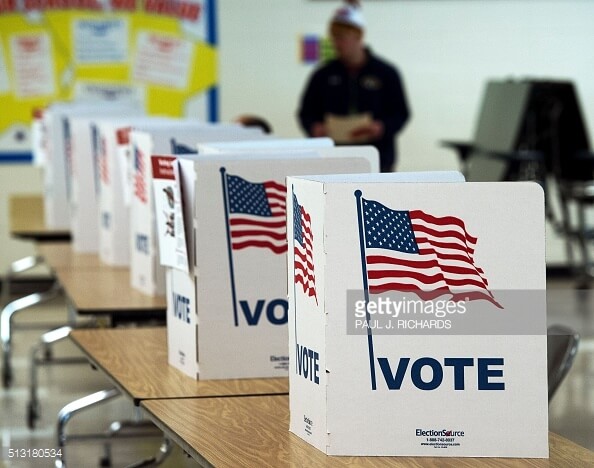
By John Nichols
A panel of three federal judges determines that Republicans drew legislative district lines that were “intended to burden the representational rights of Democratic voters.”
Nothing so defines partisan control of the U.S. House of Representatives and state legislatures across the country as the gerrymandering of district lines by politicians who game the process in favor of themselves and their parties. Money in politics matters, as do archaic voting processes and dysfunctional media. But when district lines are drawn to give an overwhelming advantage to one party and its candidates, competition dies — and future election results are essentially set in stone.
So anything that upsets gerrymandering is a big deal for democracy.
And Monday’s decision by a panel of three federal judges to strike down Wisconsin legislative maps that were drawn by Governor Scott Walker’s Republicans in 2011 is a very big deal.
The judges determined that the radically gerrymandered maps were drawn by the Republicans in a manner that was “intended to burden the representational rights of Democratic voters throughout the (ten-year) period by impeding their ability to translate their votes into legislative seats.”
There is no question that the judges were right from an electoral standpoint. For instance, in 2012, when Democratic President Barack Obama swept to an easy victory in Wisconsin, and when Democratic U.S. Senate candidate Tammy Baldwin was elected with a substantial majority, Democrats won 53 percent of the statewide vote for state Assembly seats. Yet, the Republicans maintained a 60-39 majority in the legislative chamber.
“This decision is a massive victory for voters in Wisconsin and beyond…” — Carolyn Fiddler
The districts were so thoroughly gerrymandered in favor of the Republicans that a 200,000-vote statewide advantage for the Democrats meant nothing.
That’s what got a group of lawyers thinking that an unprecedented court challenge to gerrymandering might just gain traction. They were right. The panel of federal judges determined, with a 2-1 vote, that the Republican maps were unconstitutional.
“We find that the discriminatory effect is not explained by the political geography of Wisconsin nor is it justified by a legitimate state interest,” declared the majority decision. “Consequently, Act 43 (the Republican gerrymandering scheme) constitutes an unconstitutional political gerrymander.”
This is a big deal for Wisconsin, and potentially for the rest of the country. An appeal by Republican partisans to the US Supreme Court is all but certain. But the decision by the veteran federal jurists is carefully constructed to withstand challenges. If it is upheld it will lead to a redrawing of maps in Wisconsin — not just for the state Assembly but for the state Senate, which is made up of districts based on the Assembly maps. If and when a democracy standard is established for the drawing of legislative districts, other states will surely see challenges. And a discussion about the gerrymandering of congressional district lines could open.
LIKE THIS? GET MORE OF OUR BEST REPORTING AND ANALYSIS
Enter Email
SIGN UP!
Carolyn Fiddler, with the national Democratic Legislative Campaign Committee, calls the Wisconsin decision “an actual game-changer.”
“This decision is a massive victory for voters in Wisconsin and beyond, and it starts a new chapter in the fight against the anti-democratic, extreme partisan gerrymandering executed by Republicans in 2011 in states across the country,” says Fiddler.
Bill Whitford, a former University of Wisconsin Law School professor who was the lead plaintiff in the case, shared Fiddler’s enthusiasm. Describing the decision as “truly historic,” Whitford explained that, “As a lifelong Democrat, the court’s decision recognizes the power of my voice and the voices of all other Democrats across the state. This decision could have a monumental impact in ensuring that voters’ voices are heard across the nation, regardless of party. I want fair elections, where the voters have the power, not a gerrymander for either side created by self-interested politicians. That’s what today’s decision is all about.”
And here’s an important twist: There are Republicans who agree.
Gerrymandering in Wisconsin and other states tipped the balance not merely toward the GOP but toward the far right-wing of the GOP. As Republican primaries became the defining contests in legislative districts, conservatives pushed moderate Republicans to the sidelines.
If fair districts are restored, and primary voters must concern themselves with nominating candidates who are electable in November, moderates in both parties stand a chance, explains former legislator Dale Schultz, who served as the Republican Majority Leader of the Wisconsin State Senate and who opposed Walker’s agenda on a number of labor and environmental issues.
“This is a victory for democracy – not just for Democrats, but for all Wisconsin citizens,” says Schultz, a co-chair the Fair Elections Project that has waged the legal battle against gerrymandering. “Everyone benefits from a fair elections process that moderates the worst tendencies of extremists in both parties.”
But the biggest beneficiaries are not parties, or factions within parties. The biggest beneficiaries are voters who get a choice.
“This is truly a monumental victory for the plaintiffs in this case,” says Gerry Hebert, the director of Voting Rights and Redistricting Program at the Campaign Legal Center, which joined the Wisconsin case prior to the trial. “But more importantly this is a historic moment for our nation and the betterment of democracy.”



